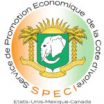





Côte d’Ivoire is a pioneer in terms of private sector in terms of African infrastructure developments. The country continues to attract national and international investors thanks to many ongoing projects. The transport sector has received more than $10 billion under the National Development Plan 2016-2020.
To access the status of emerging country, Côte d’Ivoire has strengthened its infrastructure, both in terms of quantity and performance. Access to key infrastructure, such as electricity, transport and telecommunications is not yet generalized for the entire population, which penalizes growth as well as economic development.
The Road Sector
Infrastructure is a vector of economic growth and promotes the growth of the economy thanks to the transport of goods. The Ivorian Road sectors guarantee more than 90% of the movement of people and goods, both internally and with neighboring countries. To make it operational, the Government has established a policy of maintenance, reinforcement of existing infrastructure and the construction of new paved roads.
Due to this, the government adopted in 2018 an investment program amounting to 3,750 billion Fr CFA over five years; the program targets the construction of bridges, highways, and hydraulic works.
Priority projects in the road sector require funding amounting to 2,482,225 million Fr CFA.
Real Estate
Côte d’Ivoire is in demand in both private and public sectors. The growing demand from local and foreign compagnies in the process of setting up offers opportunities for growth in the real estate sector.
With a share in the gross domestic product (GDP) estimated at 6%, the real estate sector offers enormous potential for foreign investors.
The need for housing in the city of Abidjan is as follow:
-
41% for social housing
-
40% for budget accommodation
-
13% for medium-class accommodation
-
6% for high standing accommodation
Population of main cities (RGPH 2014)
Abidjan: 4,707,000 inhabitants
Bouaké: 542,000 inhabitants
Korhogo: 245,000 inhabitants
Yamoussoukro: 207,000 inhabitants
San Pedro: 174,000 inhabitants
Investment opportunities include:
-
Construction of 5,000 housing units for the Police, Gendarmerie, Army, and other State officials,
-
Rehabilitation of the PYRAMIDE building in Abidjan Plateau.
-
Development of land for industrial use,
-
Installation of construction materials manufacturing plants.
-
Programs for the construction and rehabilitation of public real estate infrastructure,
-
Construction of industrial cement plant infrastructure,
-
Construction of an exhibition center,

